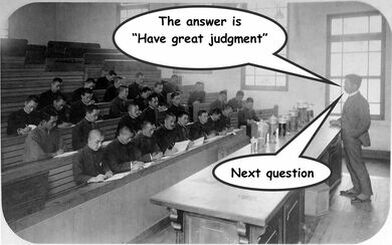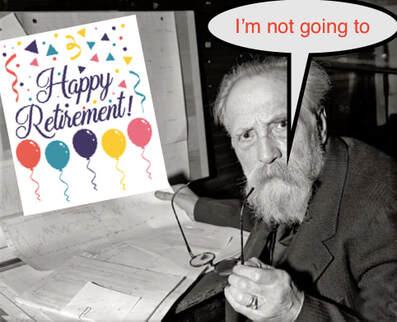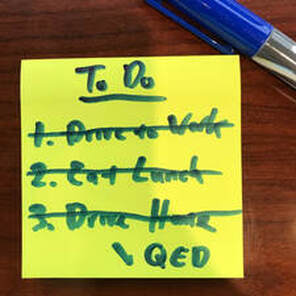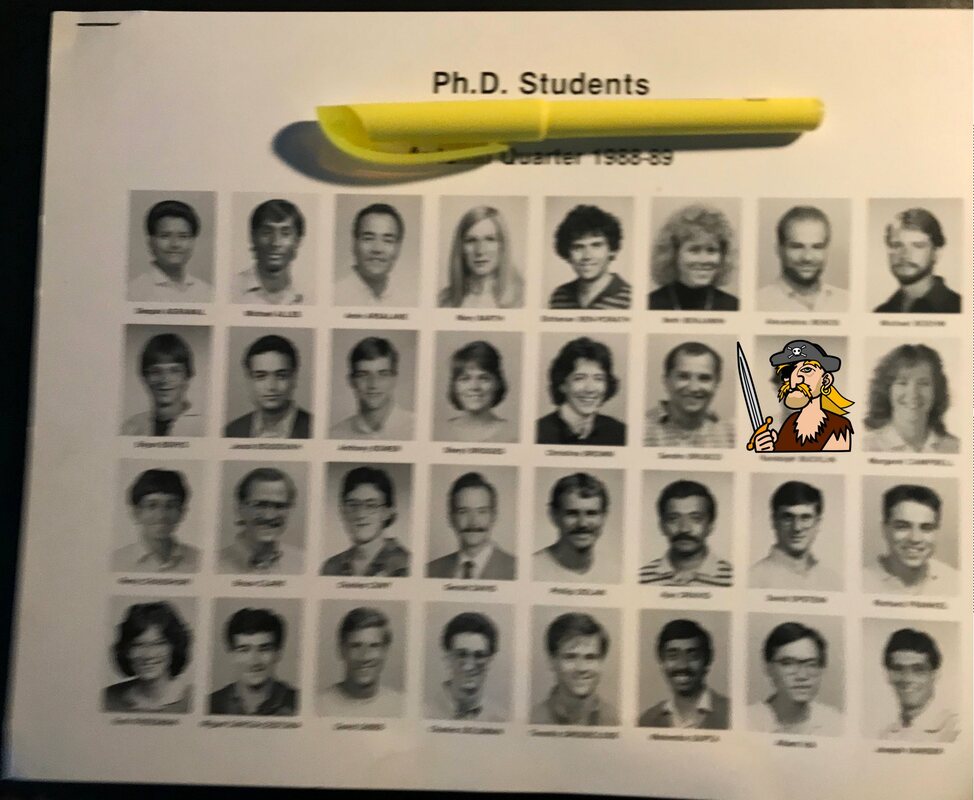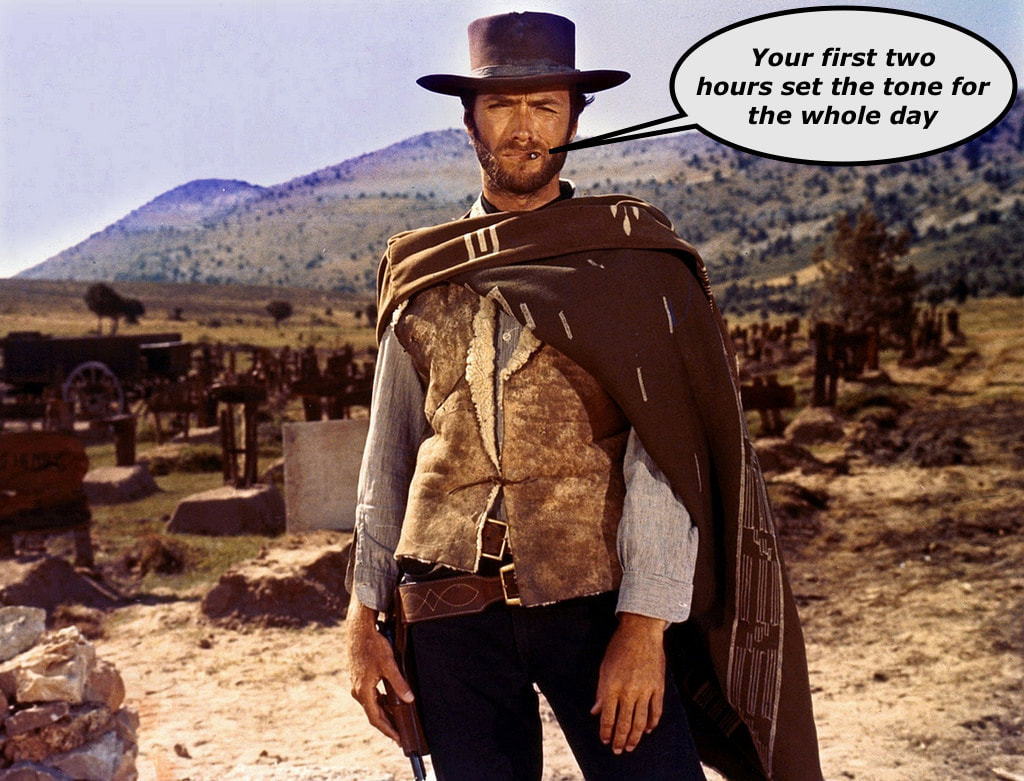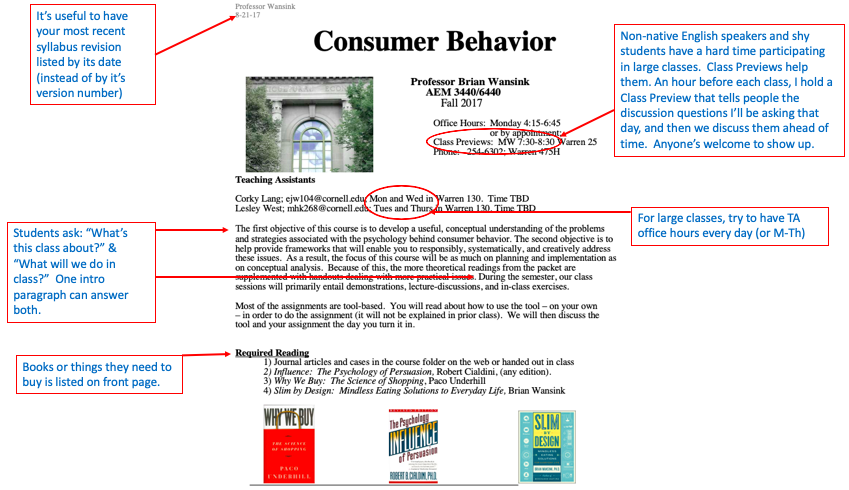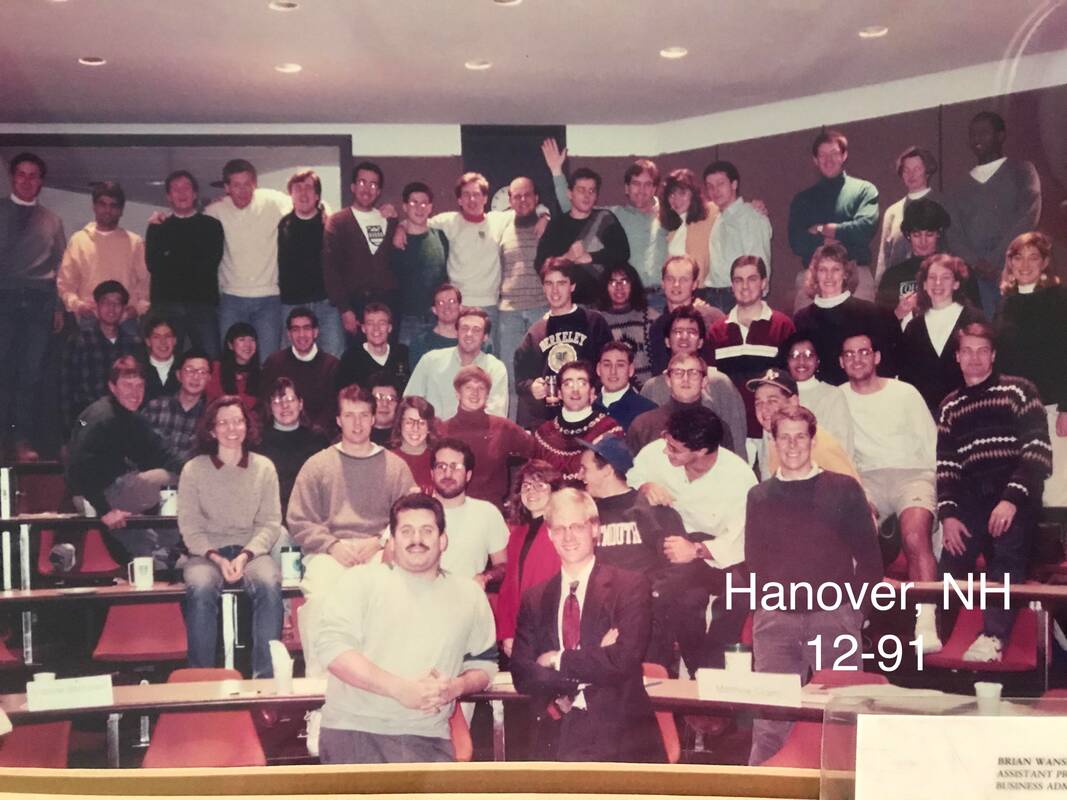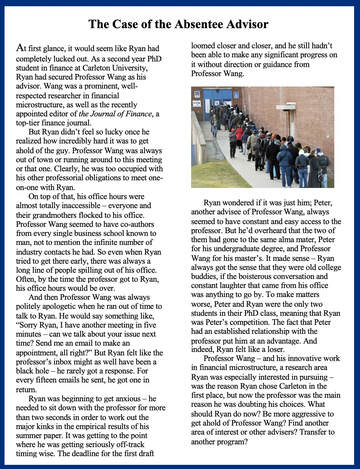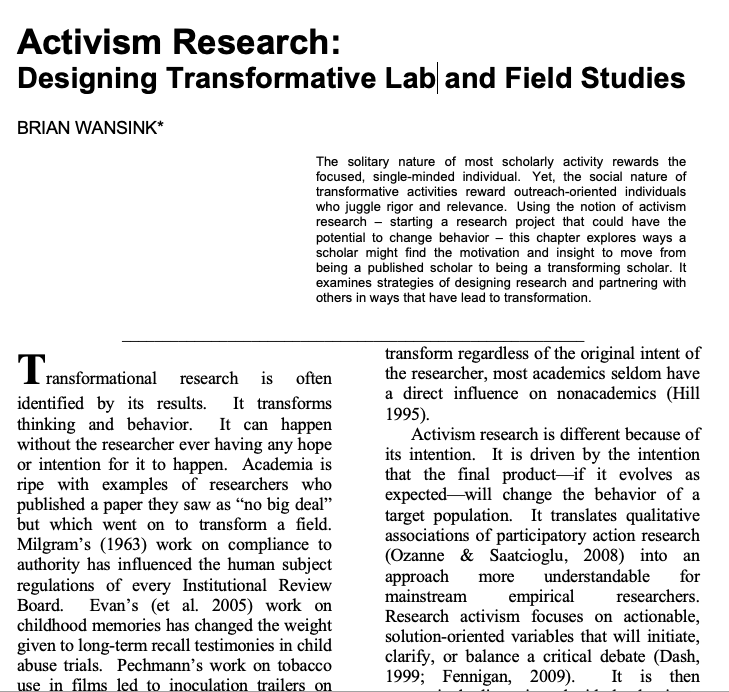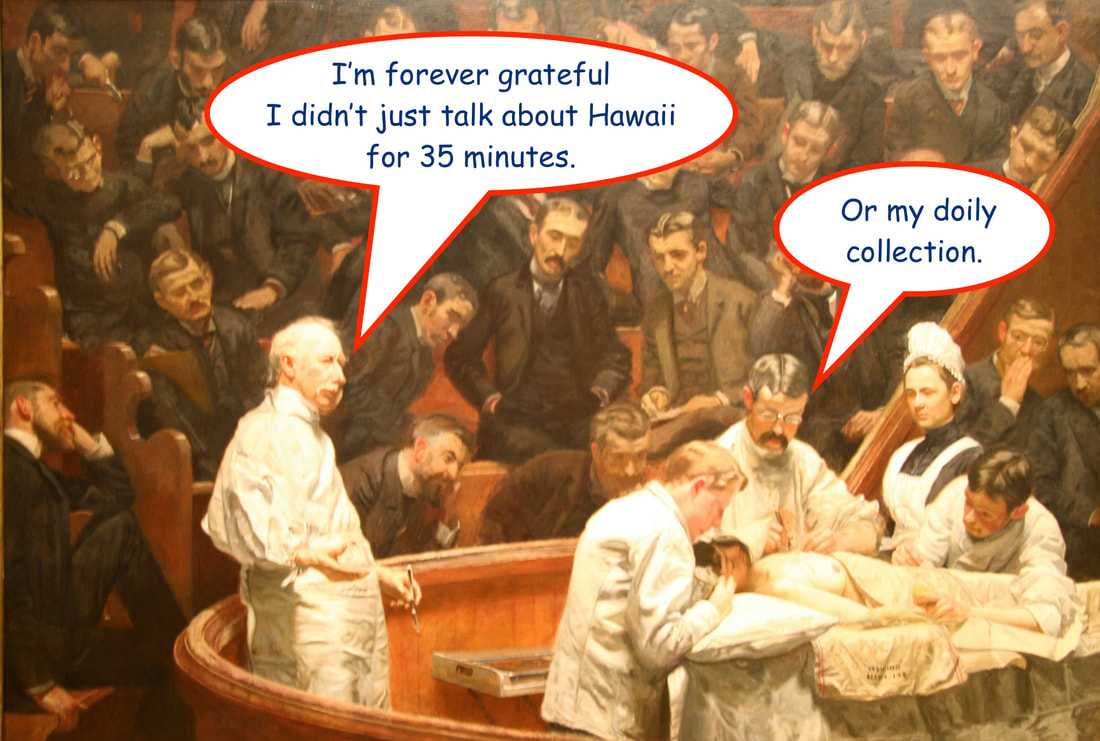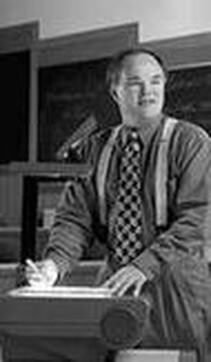On October 5, we're moving to AcademicsOnly.org!The new website we're moving to -- Academics Only -- is a intended to grow into a "How-to" community for anyone interested in academia. It's specifically intended to grow into a community that's super helpful to new people: frustrated PhD students, anxious new professors, and independent scholars. There's separate resource tabs for each group, and there's a monthly blog that's usually of general interest. Academics shines most brightly when it's cooperative. Here's a place where we can share the ideas, strategies, and systems that we think will help others. Right now most of the content is being moved over from my old website, so needs to great advice from other people. A lot of people could use your help. For instance, if you created a useful Teaching Tip Sheet, here's where you could share it. If you read a helpful article on how to write more clearly, here's where we could post a link. If your advisor gave you a great template creating a conference poster, here's where they could share it. It's for basically anything you personally created or discovered that you've found used and that could help others.
When you get to the website, you can either send me what you have, or you direct me to what you discovered and I'll track down the author. Also, you can either post it with your name or post it anonymously. Just shoot me an email and we can schedule a call if needed. Academia can be incredibly rewarding -- for you, your students, and those influenced by your research and other projects. I hope some of the ideas here can help speed you down that road so you can have a bigger impact and a lot of fun. Let me know below what might help you most. Today’s the 30th anniversary of the day when the University Registrar weighed five copies of my signed dissertation, stamped it with a red smiley face, and said, “Congratulations, Dr. Wansink.” Within 20 minutes I was shifting my Mercury Lynx into 5th gear on the 3000 mile, unairconditioned, cross-country drive to start teaching the next Tuesday. All I needed was a t-shirt that said “Yesterday I couldn’t even spell ‘Perfessor,’ and today I are one.” I annually celebrate this signature day with good steak, good wine, and having good friends over for a dinner party. I also celebrate it by writing down the best lessons I learned over the past year. Usually, they're the lessons I learned the hard way. Over 30 years, I’ve written down a ton of annual lessons in 30 different notebooks. Some is advice people gave me, and some is based on my own experience – things that are useful to me and might be useful to students and friends. Maybe it will give them a boost or save them some pain. In the spirit of counting to 30 today, here’s a sample of some of these that might be a boost or save a stumble Advice to Graduate Students 1. “The ‘P’ in PhD stands for Perseverance.” – The smartest and most talented people in PhD programs aren’t always the ones who graduate. 2. “It’s an N-period game.” When I had to find a new advisor and defend a new dissertation proposal with four months notice, the game theory economist who gave me this advice was implying that there are a lot of second and third chances in academia as long as you keep swinging. Related to this . . . 3. “Choose your best friend as your advisor.” I heard this from a Med School professor friend who then said “And choose your older brother to be your second committee member, and choose your favorite uncle to be your third.” We tend to choose our dissertation committee based on who’s most famous. Consider which professors most want you to graduate. [Read more] 4. Be a Visiting Professor. Suppose you don’t get a good offer when you graduate from your PhD program (or you get turned down for tenure). If you “settle” for a tenure-track at a school you’re not crazy about, you’ll be perceptually anchored to that type of school by both you and by others. Being a 1- or 2-year visiting professor keeps you from getting anchored, gives you more time to strengthen your vita, and lets you swing again. Career Observations 5. Do solution-focused research. Developing theory is prestigious, but coming up with a solution to an everyday problem is super gratifying. (Again, this is totally my personal preference and advice to myself.) [Read more] 6. Go to a different conference outside your field every year. Even if it’s an on-campus mini-conference in anthropology, you’ll learn a lot and it will keep you humble. 7. Leave town for your sabbatical. Moving is a hassle and there are 100 great reasons why you should spend your sabbatical at home (your spouse’s job, your kids, your doggy, your home, and so on). But I’ve never know anyone who went away for their sabbatical and who didn’t claim it was a career highlight. I’ve also never known anyone who spent their sabbatical at home and remembered anything about it two years later. 8. Writing a book is useful. Almost all academic authors are disappointed their books aren't cited more or sell more. Still, writing a book is worth it because it motivates you to organize, distill, and share what you understand about your topic, and then clarify the gaps you might want to fill in next. 9. A Leave-of-Absence is Transforming. Again, this is about moving away and clearing your head. Leaving town to take a 1- or 2-year paid leave of absence is incredibly revitalizing to every single person I've known. It either gives you amazing confidence that you can also be hugely succeed at something else, or it gives you amazing appreciation for academia. Maybe both. 10. Being fired is a temporary setback. Whether you don’t get tenure or whether something else in your career goes haywire, they say life is 10% what happens to you and 90% how you respond. If things are looking too dark, contact me and I’ll help you, or I'll find you some help. 11. Never retire. One of the great beauties of academia is you can always keep doing the parts of it you love most -- even if you don't go into work. (Here are some ideas on doing it without having later regrets.) Research Experiences 12. 90% of reviewers are great coaches. Reviewers have either made my papers better or they‘ve made me a better researcher. If it wasn’t for reviewers, some of my papers would have never been read by anyone other than me. 13. Create a Best Practices Guide for writing journal articles. – Find 30-40 favorite papers written by other researchers and list out the different strategies, tactics, and words you see them use (perhaps unconsciously) in their abstract, their opening-line, their first paragraph, their introduction, their background, theory section, tables, and so forth. When you’re finished distilling this, you’ll have a Best Practices guide that’s personalized to what you like in a paper and will be your writing guide. When I did this, my acceptance rate almost tripled. Also, papers became a lot easier and more fun for me to write. 14. Use a 2-2-2 strategy to unclog your pipeline. If a manuscript gets desk-rejected, I try to send it to the next journal within 2 days. If it gets conditionally accepted, I revise it and send it back within 2 weeks. If it gets a revise-and-resubmit that doesn’t require any additional studies, I send it back within 2 months. 15. Field studies are worth the hassle. They’re messy, hard to coordinate, inefficient, error-riddled, and harder to publish than lab studies. Still, they are usually memorable and impactful. 16. “Ideas are cheap. Execution is what pays.” Even a mediocre brainstorming session will generate 3-4 publishable ideas, and almost none will be followed up on. Edison said something like “Publishing in the Journal of [insert favorite journal here] is 1% inspiration and 99% perspiration.” Executing is what matters. Productivity Tips 17. “You can either read a lot or you can write a lot, but you can't do both.” 18. "Write the first two hours of every day." The guy who told me this, pretty much said it like a command: no email, no breakfast, no class stuff. Before breakfast and before the kids wake up. It sets a productivity vibe for the whole day. [Read more] 19. Write down the 3 specific things you'll finish each day. Better to have three things completed than 20 things pushed ahead an inch. [Read more] Teaching Insights 20. "Imagine your brother, daughter, or younger self in the front row of your class." This will lead you to give your class sessions more context and more “So what?” It’s also help you cut loose a bit and give the class more punch, fun, and humor. 21. "Teach for where a student will be in 10 years." The guy who told me this is a legend. The idea is to try to get students to visualize their most successful self in 10 years. If we can teach them as the "ten-years-from-now" person they'll be, we’ll be teaching them something they couldn’t just learn from an online class. 22. Education is a buffet; be something unique. Some courses are meaty and some are refreshing; some professors are fiery and others are more chill. You don't need to be like everyone else. By being your best, genuine, earnest self, you’ll be adding variety to their educational buffet. 23. Hold class previews for participation classes. Non-native English speakers and shy students have a hard time participating in class, but class previews can help them. An hour before each class, I hold a class preview and we briefly discuss the day's discussion questions ahead of time. Anyone’s welcome to show up. [Read more] 24. Ask good students who the “must-take” teachers are. See if you can sit in on a couple of their class sessions (most are flattered and only 2 ever turned me down). Take notes about the good teaching ideas you can use. 25. “Don’t become a parody of yourself.” Good teachers slowly start to exaggerate the things they’re good at, and they eventually take it over the top and become a parody of themselves. Dramatic teachers will overfocus on drama. Entertaining teachers will overfocus on entertainment. Cool professors teachers will overfocus on coolness, and so on. [Read more] Fun, People, and Things 26. “Fun people accidently say stupid things. Don’t beat yourself up.” Some academics over-edit everything they say before they speak. If you have a more spontaneous personality, you won't be happy if you have to over edit everything you do. Small accidents will happen (but we get used to it). 27. Dress-up and show-up early for Meetings. This is one way to show respect for the profession and for my colleagues. (Again, this is totally my advice to myself.) Like a US Marine Colonel once told me, "Early is on time. On time is late." 28. Don’t apologize for who I am or hide from it. I’ve had senior colleagues give me well-meaning advice that I should never mention to anyone that I shop at Walmart, play sax in a rock band, go to church, host board game nights, do stand-up comedy, or go thrifting. What you love doing isn’t worth being self-conscious over. If those things are that big of a deal at your school, you’d probably be happier at a different school anyway. [Read more] 29. The more 1-on-1 fun stuff I do with different colleagues outside of work, the more I love my job. The crazier the stuff we do, the more we both seem to love it and remember it. 30. “Max out your TIAA-CREF retirement contribution. Then add more.” The guy who told me this was a retired English professor -- who had two very nice homes. It’s not flashy or cool to save money instead of spending it, but no one over 50 regrets having done so. *** Having an academic mind is a Blurse. It's both a blessing and a curse. It's a blessing because we are almost always looking for better ways to learn or to improve. It's a curse because we're not always very open to what others have found. We feel we have to do it ourselves, or discover it ourselves. If we hear advice from someone else, we might think it doesn't apply or that we're the exception. Ten of the lessons I mentioned are advice someone gave to me. The main reason their advice stuck with me was because I had just finished really screwing up doing it My Way: • #3 only registered when I was told I was being kicked out of the PhD program • #17-18 were only great ideas after I was fired for not publishing enough • #20-21 were brilliant the day I got the second lowest teaching ratings in the school • #26 resonated only after I'd been hissed at in class after making an unfunny comment Hopefully these might give you a boost, save you a stumble, or lead to your own self-discovered list. Being a scholar and an academic is an unbelievably great calling. Good luck having many, many great years -- each more amazing than the one before. Let me know how I can help. 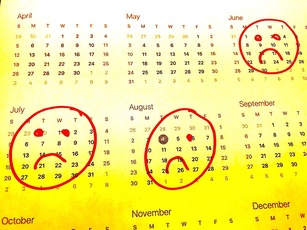 "School’s starting, and I didn't get anything done this summer.” I’ve heard this every August, and I’ve said this every August. Whenever I’ve asked professors and PhD students what percent of their planned work they got accomplished over the summer, no one has ever said “All of it.” Almost everyone says something between 25 to 35%. Everyone from the biggest, most productive super stars with the biggest lab to the most motivated, fire-in-their-belly PhD student with the biggest anxiety. We are horrible estimators of how productive we’ll be over the summer. I was in academia for 35 years (including MA and PhD years), yet every single summer I never finished more than 30% of what I planned. How can we be so poorly calibrated? We never learn. We never readjust our estimate for the next summer. Next summer we’ll still only finish 25-35% of what we planned to do. There are only two weeks in the year when I’m predictably down or blue. It’s the last two weeks of August. It’s not the heat (I mostly stay indoors). It’s not the impending classes (I love teaching). It’s not all the beginning of semester meetings (I loved my colleagues and loved passing notes to them under the table). Ten years ago, I realized that I felt down the end of every August because I had to admit “school’s starting and I haven’t gotten jack done all summer.” The beginning of school is the psychological end of the Academic Fiscal Year. One solution to our August blues lies in understanding what times of the year we do like most, and to see if we can rechannel those warm-glowy feelings to August. If you had to guess the #1 favorite time of the year for most academics, you’d probably guess “The end of school.” The #2 favorite time of the year you might guess would be the “Winter or Christmas break.” What would you guess the third favorite time of the year is? Surprisingly, I’ve heard people say it’s when they turn in their Annual Activity Report (AAR). That’s the summary document they turn into their hard-to-please Department Chair that summarizes what they’ve accomplished in the prior 12 months: What they published, who they advised, what new things they’ve started, what new teaching materials they’ve created, and so forth. Snore. How could writing an Annual Activity Report be a highlight? Because it shows in black-and-white that we didn’t sleep-walk through the year. It reminds us that the publication that we now take for granted was one that we were still biting our nails about last year at this time. It reminds us of our advises who were stressing over their undergraduate thesis a year ago and who have now happily graduated. It reminds us of the cool ideas we've into hopeful projects -- ideas we hadn't even thought of a year ago.. Going back in a 12-month-ago time machine shows us what we did accomplish. It turns our focus toward what we did – and away from what we didn’t. Once we cross things off of our academic To-do list, we tend to forget we accomplished them. August might be a good time to do a mid-year AAR. It might not turn our August blues into a happy face yellow, but might at least turn it to green. A green light for a great new school year. Have a tremendous school year. We had just paid for two overpriced $10.50 IPAs at the Drake Hotel bar when I asked this question. I regret I never implemented his answer as well I was expecting to on that day. This was eight years ago, and I had an opportunity to meet with an academic hero who had been cross-cuttingly successful across a half-dozen of behavioral fields, but most notably in law. His discoveries had changed the way cross-examinations and evidence weighting is done in certain felony cases. One of my former Teaching Assistants had gone on to work with him, and this had eventually led to us meeting whenever I was in town. Since he only had an hour, we met for a quick drink. After enthusiastically telling me about a new project, I asked, “Of all that you’ve done in your life, what makes you most proud?” I was half expecting that he’d probably say one of his legal discoveries, or maybe he’d talk about his two grown children. Neither. He paused for maybe 20 seconds and then said this: “What I’m most proud of is how I was I was really present for both my father and mother in the last years of their lives.” He explained that he had “being really there for them” and had made it a central priority. No regrets about what other projects he might not have started or finished because he was focused on making them feel comfortable, loved, special, and that they had led meaningful, appreciated lives. At the time both of my parents were healthy and 85, and I vowed I’d make sure I did the same. My dear Dad passed away on June 2, 2020. He was one of the greatest generation -- selfless, modest, team-focused, honest, hard-working, and tireless. He had 91 years of great health and good humor, followed by a couple stinker years due to him breaking his hip the day after my Mom died. Still had his sense of humor to the end.
I keep thinking that his last 18 months would have been easier had we moved him in to live with us. My wife wanted to, but I thought there were too many uncertainties. Instead, we moved him into assisted living about a mile from my brother, who could then see him most days, and where we would travel the 10 hours down to see him every couple months. Thinking back, if he had moved in with us, he might not have lived longer, but I think he would have been happier. When a heroic, single-surviving parent can no longer live by themselves, the decision about where they should go deserves a lot of heartfelt thought. There's a difference between "being there for them" and "being really present in the last years of their lives." Being present was what he was most proud of having accomplished. I now wish I would have given to that level. I hope that if you are still blessed with one of more living parents, you'll give think about this in a way you won't regret in eight years. * * * John Charles Wansink, 93, of Sioux City, Iowa, died on June 2, 2020. John was born October 28, 1926, in Sanborn, Iowa, to Henry and Clara Wansink. After graduating from Sioux City East High School, he studied business at Morningside College, where he also lettered in football and basketball. He had a number of unusual experiences in his life, including working as a cowboy in Montana and playing basketball against the Harlem Globetrotters. After running his own business in his 20s, he went on the production line at Metz Baking Company for over 30 years. John married Naomi Fullerton on March 21, 1948. With their two sons, Brian, of Ithaca, New York, and Craig, of Virginia Beach, Virginia, for years they enjoyed trips to Montana, summer family camps, and Friday night Jeopardy games, complete with popcorn and M&Ms. John had an active mind and loved crossword puzzles, reading, and movies. He was a lifelong athlete, playing golf into his late 80s. Along with Naomi, he enjoyed both square dancing and volunteering at nonprofit agencies for over 20 years after he retired. For over 50 years, he was an active member of Westminster Presbyterian Church in Sioux City. For the last two years of his life, he was a proud member of Second Presbyterian Church in Norfolk, Virginia. Those left to honor his memory include his sons, Craig (Nancy) and Brian (Jennifer), and five grandchildren, Katrina, Teddy, Audrey, Valerie, and Lieve. John will be remembered as a good, decent, fair, thoughtful, and hard-working man. He was deeply loved. He will be deeply missed. Memories of him will be deeply treasured. |
Welcome...Fun, useful, or wacky experiences about getting tenure, teaching better, publishing more, and having an incredibly rewarding career.
Categories
All
Some Blog ShortcutsArchives
September 2020
|
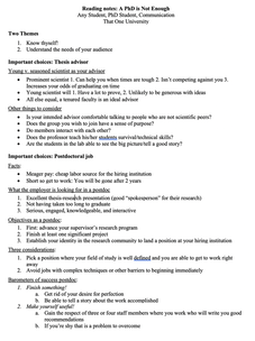
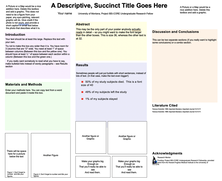
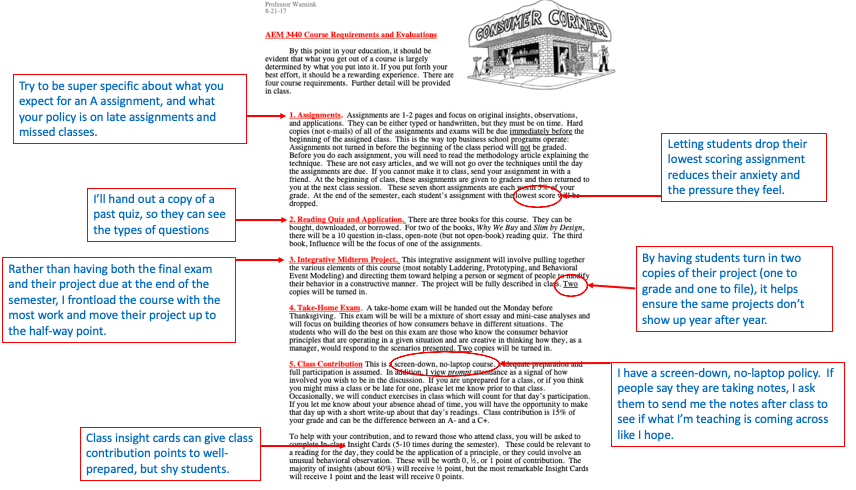
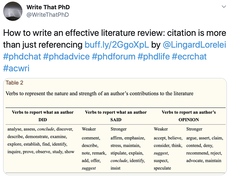

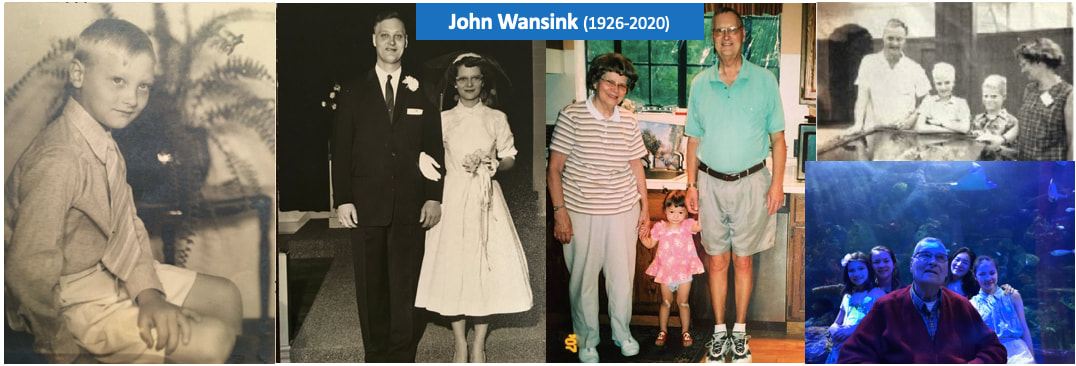

 RSS Feed
RSS Feed
